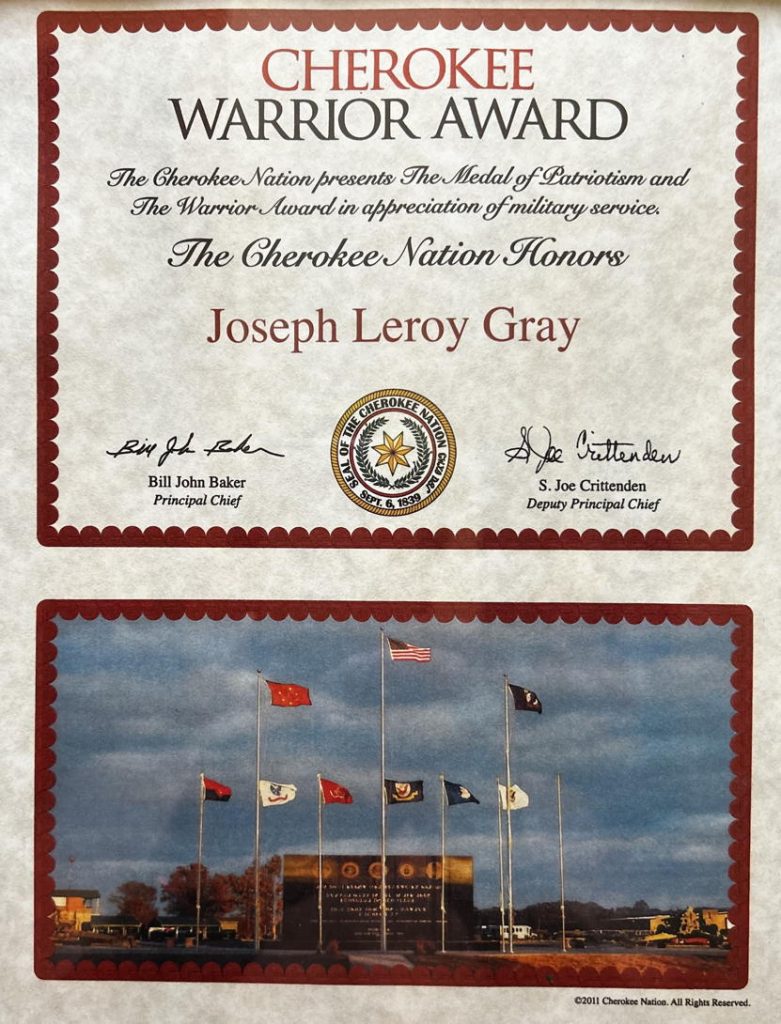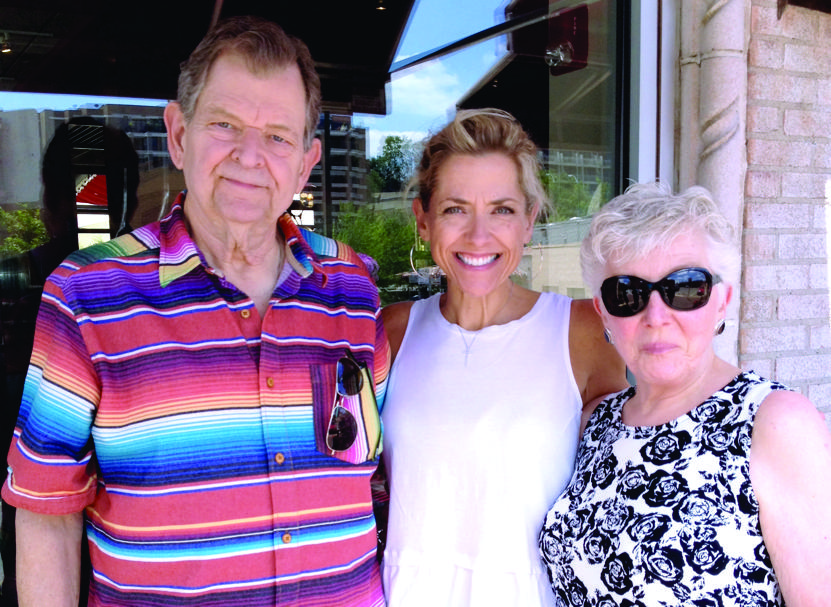
Scott Gregory
Complicated – the word that comes to mind most often when contemplating life today, in 2023, as a Native American Indian. Living, working, playing, raising children, worshipping, building a life and some wealth, honoring culture, sustaining family traditions – all of those seemingly normal activities are bestowed a level of complication when trying to carry it all as a person whose ancestors have been through so much – on the very soil where we live. How is it possible to square the past and present and future, while juggling the sins and saints? How can we better understand the past and the people – our peers – now?
Scott Gregory is a resident of Roeland Park, a practicing CPA, a husband, father, grandfather, and a Cherokee. Scott has been actively involved in the Cherokee community for decades – both in Kansas City, and in the headquarters of the tribe, Tahlequah, Oklahoma. In the late 1970s and early ‘80s, Scott served as the finance director. In 1990, he was appointed to the newly formed Cherokee Tax Commission, whose mission is: “The purpose of the Cherokee Nation Tax Code is to raise revenues, in a fair and efficient manner, to enable the government of the Cherokee Nation to provide services to Cherokee Nation citizens and promote tribal economic development, self-sufficiency and a strong tribal government.”
The Cherokee Nation has recently re-elected Principal Chief Chuck Hoskin, Jr., and he has delivered his 2023 State of the Nation speech with priorities. Tribal sovereignty is a clear priority with the “assertion of its culture and artifacts, which has been taken by outside parties and damaged the identity of the Nation and its people.” He also vows that his administration will attain the reauthorization of the Durbin Feeling Language Preservation Act. On January 5, 2023, the Durbin Feeling Native American Languages Act became law. “The purpose of this legislation is to support Native American language reclamation efforts, reduce bureaucratic inefficiencies and duplications that impede these efforts, and also to assess the status of the vitality of Native American languages.” Additionally, Chief Hoskin, Jr. is dedicated to improving health care in the Cherokee Nation. His budget is bold – a record $3.8 billion.
Why does all of this matter? The Cherokee language is one of the last surviving Native American Indian languages. Through the assimilation efforts referenced in our timeline, language, culture, identity, arts, literature, health, and history have been lost – much of it permanently. The Cherokee language is a “polysynthetic” language – “A single Cherokee word can convey ideas that would require multiple English words to express, from the context of the assertion and connotations about the speaker to the idea’s action and its object.”
Because language is so important to any civilization, it is imperative to Natives that this language be saved. Scott tells a humorous anecdote about how, as a tribal project, the Cherokee attempted to have IBM make a “ball” for their Selectric typewriter. It seems that it might have been an impossible request, as the language is much too large to be captured on a single revolving ball.
While it might be complicated, it is also a perfect representation of the Cherokee attempts to save their culture. Another local Cherokee, Joseph Gray, and his wife, Connie, (residents of Independence), are so interested in preserving the heritage and language that they are taking lessons and teaching their grandchildren as they go. Joseph’s family is Cherokee, and his identity has been formed through the family lore, and his attendance at Haskell Indian Nations University in Lawrence. Originally opened in 1884 as a trade school for Indian children, it grew into an accredited junior college, and, in 1993, the current name was adopted. Joseph was allowed to delve further into his Cherokee heritage – beyond what his parents had given him – by attending a school dedicated to the national preservation of Indian culture.

Joseph Gray’s commendation following military service in the Navy.

Scott, Shana, and Waynell Gregory
Connie Gray considers herself Cherokee, as does her family. Their belief is that if one is married into the Nation, and adopts the culture and heritage and traditions, then that is all the codification needed. She speaks wistfully about how important the Cherokee Nation is to her husband and their extended family. The food, the traditions, the stories, the language – all play a part in their everyday lives. Connie’s professional training and background is teaching, but she has also been trained as a death doula – an end-of-life guide who helps a person and their family transition through the dying process. Connie takes this role very seriously, as she has had to help transition her own family members recently. She feels that the role of death doula is very close at heart to the Cherokee values of earth elements, and the belief that the world should have balance, harmony, cooperation, and respect. Her practice speaks to her and Joseph’s quiet, respectful regard for their Tribal Nation. Respect for elders is one more piece of this magnificent culture that should be celebrated, and Connie is doing her part.
What Scott and Joseph and Connie all mention are the following thoughts for the rest of us as we try to understand their loss, grieving, and reclamation: They have lost so much; every facet of their lives has been assimilated and appropriated. They are holding on to the pieces of their ancestors’ history tightly as the stories need to be perpetuated. Their hope is that we will come to understand their angst regarding specific local cultural appropriations. Their hope is that we will let them decide how to continue to speak their language and possibly teach us some of it. Their pride in their Cherokee heritage is palpable and contagious. In profiling a bit about our peers, it is our hope that it provides a personal glimpse into the love they have of the past, and the hopes they have for the future.
Featured in the November 11, 2023 issue of The Independent.
By Anne Potter Russ